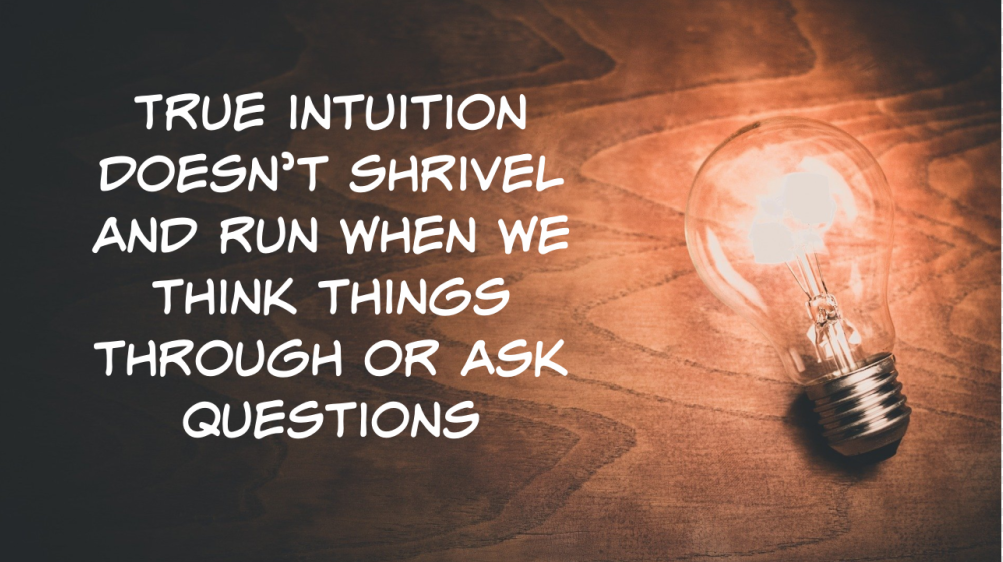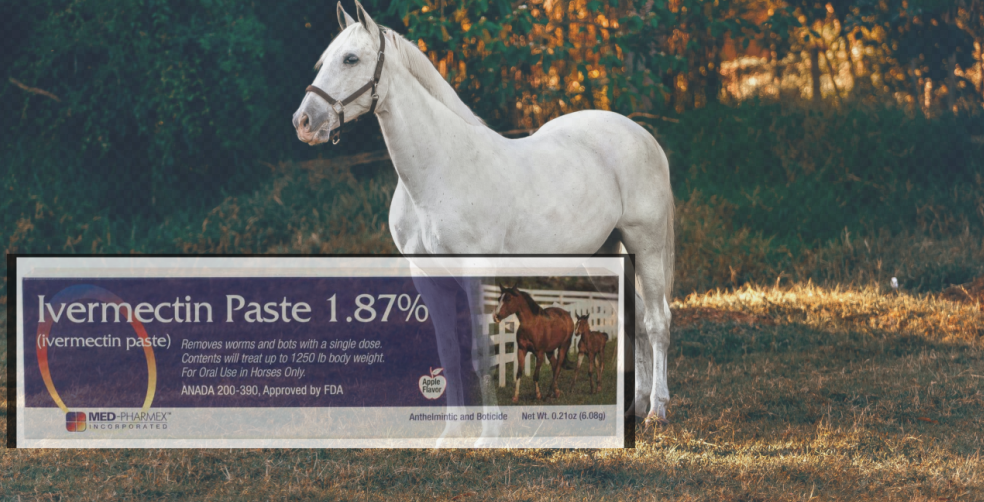
Tapping my deep knowing or intuition helps me navigate life from a place of inner-directedness. The question, “What am I feeling called to do now” is all-important to me, whether that information comes from intuition, a gut feeling or felt sense in my body, inner guides, or spiritual revelation.
But having a strong intuition doesn’t get me off the hook for thinking through the ideas I have received. After all, I’m human and subject to biases, conditioned responses, and influence by friends and, occasionally, social media.
I can make my understanding stronger when I combine my intuition and inner knowing with thinking and reasoning.
Imagine this
It’s often easier to see someone else’s biases than our own. So imagine:
A friend comes to you and says, “I’ve got a deep intuition that I should use ivermectin as a preventative for Covid.” (This is fiction, but I have heard some pretty weird things spoken in the name of inner guidance.)
My first response (not good) might be to ask, “Has your inner guidance system been on Facebook recently?”
However, I believe it important to respect the inner knowing of others.
So instead, I could offer to give my friend some time to ask questions and think things through.

Thinking can be hard. Try 100 questions
I find in-depth, objective thinking difficult. Forget the Ph.D. or brain-smarts, I find sticking with one question, one issue, or one possible action for even five focused minutes challenging.
I used to do a meditation that ended with a five to ten-minute period in which we could think calmly about one issue, hopefully with a clear mind. My mind, typically, would skit around asking profound questions like How soon will this be over so I can eat chocolate?
That same meditation practice, however, gave me a technique for thinking about an issue objectively: the practice of 100 questions. I find it very useful. The idea was to generate 100 relevant questions about a topic, issue, or action we wanted to know more about. If I had an intuition about something I should do, this was a great way to think it through.
For example, if I had a gut feeling that I should publish my book with a small publisher, I could generate 100 questions to clarify whether this would be a good course of action.
In the process of creating my list, some questions would seem obvious, others more far-fetched. After about 70 questions, I’d begin to stretch into my imagination. Whenever I use this process, a question will often pop up and offer a new way to approach the topic.
Sometimes, the questions themselves contain seeds of answers or ideas for action.
When I create questions this way, I have to put my intuitive knowing on the shelf for a few minutes. I always promise it, “I’ll return.”
True intuition or inner guidance doesn’t shrivel and run with the first attempt to think things through or ask questions.

The matter of ivermectin
I’ve been thinking about how I would support the friend who was feeling guided to take ivermectin. I imagined sitting down and generating 100 questions about the drug. I’d establish a boundary: only questions allowed (no opinion-fest).
My role would be as a witness or sounding board supporting my friend’s exploration.
Before I could be effective in that role, though, I’d have to own my own biases. My starting place: I’m a horse owner. The drug is a dewormer. End of story. (It’s a bit gross when the orange goo drips out of my mare’s mouth.)
When I’d hear about people wanting to take ivermectin, I’d laugh and say,
“Using ivermectin is the craziest idea for fighting Covid ever.” (An opinion amply supported on SNL and late-night comedy.)
But what did I really know? Not very much.

I decided, as an experiment, to generate a small sample of questions:
- What does ivermectin do?
- How has it been applied to humans?
- What is the state of research about potential new applications?
- Where has it been applied to Covid?
- What are the risks?
- How did the initial idea of using it to fight the Coronavirus begin?
- Who has picked up and spread the idea?
- Where has the science been distorted?
- Are there any interests trying to gain from this distortion?
After generating my questions, I became more curious. I found a research-based medical article online from the Proceedings of the Japan Academy, 2011, which challenged my thinking.
In the summary, the authors wrote (my underlines):
[Used initially with animals ivermectin] …” was quickly discovered to be ideal in combating two of the world’s most devastating and disfiguring diseases which have plagued the world’s poor throughout the tropics for centuries. It is now being used free-of-charge as the sole tool in campaigns to eliminate both diseases globally. It has also been used to successfully overcome several other human diseases and new uses for it are continually being found. This paper looks in depth at the events surrounding ivermectin’s passage from being a huge success in Animal Health into its widespread use in humans, a development which has led many to describe it as a “wonder” drug.“
I had no idea there were valid human uses for the drug.
I needed to change my tune. Now, I would say to others:
“Ivermectin is a drug with powerful, still to be discovered, potential. It may be worth investigating its applications to Covid or future pandemics. In the meantime, such applications are unproven and potentially very dangerous. While there is scientific data about the drug, most of the information circulating on social media has been distorted and used to distract people from other, more proven ways of treating the disease.”
That’d be more of a mouthful and less comedic than “how stupid.” But more truthful.
With my own biases questioned, I could be more effective with my friend.
How to think through our intuitions
Biases are powerful. It never hurts to think out the intuitions or inner guidance we receive.
As I said, true insight doesn’t fly away when it is tested.
Here are some ways to partner with your intuition:
- Tune into yourself and keep checking the information you receive as you think about a particular issue.
- Don’t be afraid to ask lots of practical or scientific questions.
- Consider your biases.
- Check out your intuitions with a friend you trust.
- Think out the action implications.
- Ask more questions.
Deep intuition isn’t afraid to dance with reason.
And no, you can’t buy my ivermectin. I’m still saving it for my horse.









